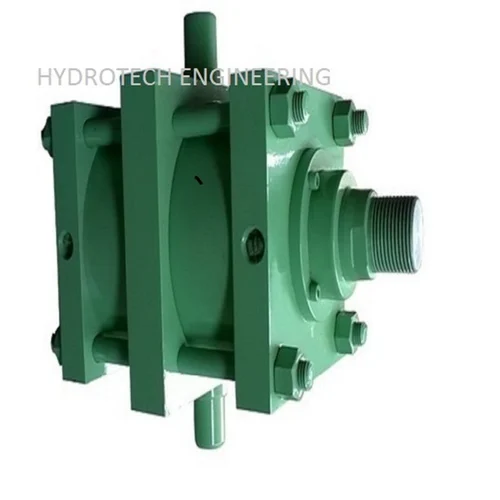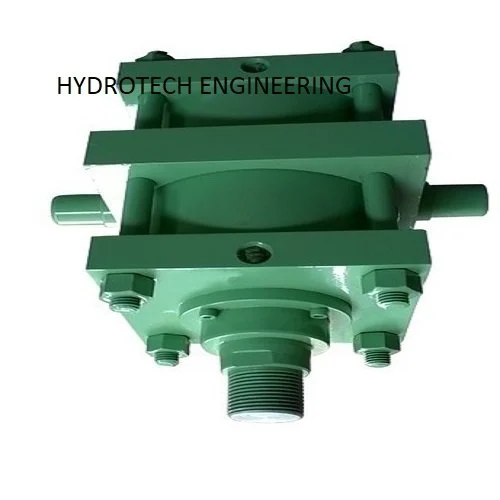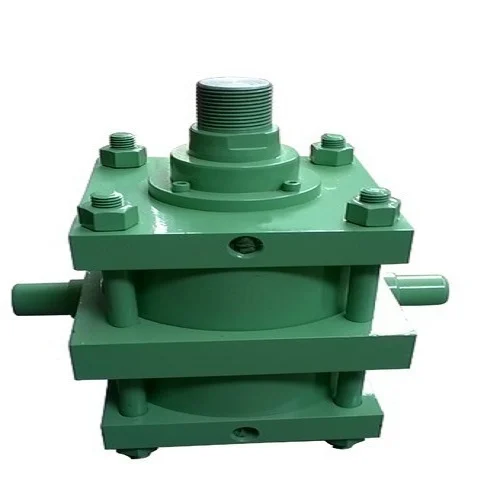Centre Trunnion Hydraulic Cylinder
₹25,000.0
| Minimum Order Quantity | 01 Piece |
| Country of Origin | Made in India |
| Usage/Application | Industrial |
| Colour | Green |
| Power | 2.5 kW |
| Frequency | 50 Hz |
| Voltage | 220 V |
| Brand | Techhydro |
| Material | Mild Steel |
| Capacity | 11-40 Ton |
| Surface Treatment | Color Coated |
| Phase | Single Phase |
- Description
- Additional information
- Reviews (0)
- Q & A
- Sustainability Remark
- More Offers
- Store Policies
- Inquiries
We are offering a wide range of Centre Trunnion Hydraulic Cylinder.
We have all varient of this product in best price and quality range.
| brands | Techhydro |
|---|
You must be logged in to post a review.
Q & A
Hydraulics can be considered relatively sustainable depending on the specific application and context. Here are some factors to consider:
Energy Efficiency: Hydraulics systems can be highly efficient when it comes to power transmission and control. Hydraulic systems have the advantage of converting fluid pressure into mechanical force, allowing for precise control and power amplification. However, the overall efficiency can vary depending on system design, component selection, and maintenance practices. Improperly designed or maintained systems can lead to energy losses and reduced sustainability.
Fluid Leakage: One of the challenges with hydraulic systems is fluid leakage. Seals and connections can deteriorate over time, leading to leaks that not only waste fluid but can also have environmental consequences. Proper maintenance and regular inspection can help minimize leakage and ensure sustainable operation.
Fluid Selection: The choice of hydraulic fluid is crucial for sustainability. Traditional hydraulic fluids are often based on mineral oils, which can have negative environmental impacts if leaked or improperly disposed of. However, there are now more sustainable alternatives available, such as bio-based or synthetic fluids, which offer better biodegradability and lower toxicity. Using environmentally friendly hydraulic fluids can enhance the sustainability of hydraulic systems.
End-of-Life Considerations: The disposal or recycling of hydraulic components and fluids at the end of their life cycle is another aspect to consider. Proper disposal methods should be followed to minimize environmental impact. Additionally, designing hydraulic systems with modularity and recyclability in mind can contribute to sustainability by allowing for easier component replacement and reducing waste.
Alternative Technologies: It's important to note that hydraulics may not always be the most sustainable choice for certain applications. In some cases, alternative technologies like electric actuators or pneumatic systems might offer better energy efficiency or reduced environmental impact. The specific requirements and constraints of each application should be considered to determine the most sustainable solution.
In summary, while hydraulics can offer high efficiency and precise control, ensuring the sustainability of hydraulic systems requires careful design, proper maintenance, fluid selection, and responsible disposal practices. By addressing these considerations, hydraulics can be a relatively sustainable choice for power transmission and control in various applications.
General Inquiries
There are no inquiries yet.





Reviews
There are no reviews yet.